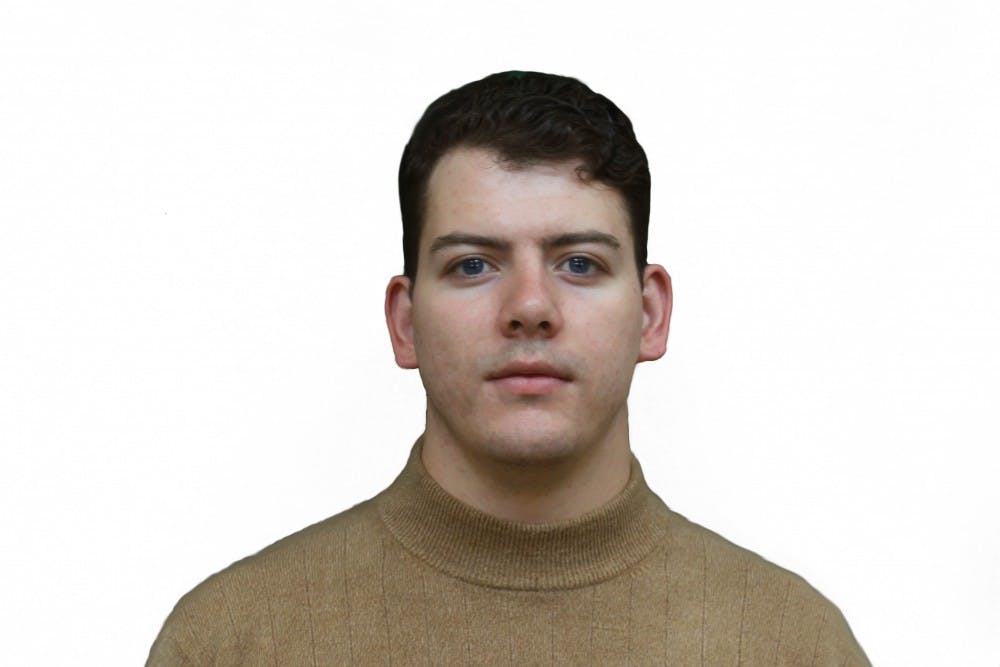Sometime in 1999 my father took me along on his daily ride to work. He was a landscape architect and had been working on planting a rose garden in the backyard of a large concrete house. After spending some time surveying the project, he passed me the pit of a plum tree that would flank the roses. Using our hands, we dug a small hole to bury it, and spent the morning with the other workers watching the future garden unfold, hole by hole in the yard.
This memory came back to me unexpectedly one day while walking home through Locust Walk. As the wind tunneled through the leaves, I noticed the trees and flowers planted by the railings, and thought I understood for the first time why my father had become a landscape architect.
Connecting the physical with the conscious — benches, pathways, lights, trees and flowers, with human movement — must give a landscaper a fascinating perspective of the world. Remembering my father's studio desk, I imagined how all these disparate elements were just thin blue lines drawn on paper, arranged as if made from the same material.
What could we learn from viewing the world in a similar way? It's easy to separate ourselves from the places we inhabit, to assume that we have a privilege over the still life around us. But by observing the world more closely, we can realize that we shape it as much as we are shaped with it, and thereby undergo the same kind of change, uncertainty, loss and growth.
One night at the Horticultural Society's grounds in Fairmount Park, I walked with my date, Irene, into a formal party held inside a tent. For a few days I had been thinking about my graduating friends, and that night I watched them with more attention than usual. Dozens of couples were dancing and drinking between the trees, moving in and out of the tent through the gardens. I noticed, as they passed along, how they focused most of their attention on each other: looking for laughs, smiles and recognition.
Nevertheless, those who were most confident in themselves, those who didn’t need any confirmation from others, harbored a social gravity that kept the party going late into the night. From where did they draw this energy if not from the approval of other people? I thought it must have been from the music itself, from the incredible setting of forests and gardens growing outside the tent — the unconscious objects that didn’t respond but framed the conversations among them.
After having done our rounds across the bar and dancefloor, Irene and I walked towards the Japanese gardens nearby. Rosebushes grew between the almond and dogwood leaves, and I imagined hands moving among them — uncovering soil, accommodating roots in the undergrowth, burying acorns and seeds.
This entire plot had once been a soil-bed flecked with holes and unearthed trunks, so different from the forest that had grown there before and the garden that would follow after.
When cabs began arriving at the venue to take people home, Irene and I sat by the gravel driveway to talk. "A world which intimately involves you with so many people you will never see again," I told her, "seems absurd." She looked puzzled for a moment, but then said enthusiastically: "Isn't that what's wonderful about it? That we lose as much as we gain, that we are given a chance to find more fascinating people to love and let go?"
If anything makes us a part of nature like the world around us, it has to be this potential to change and to be changed, this ability to shape the world and other people as they shape us.
It might be easy to separate our everyday experiences from our physical surroundings, but it is impossible to avoid moments in which this separation seems to disintegrate. Moments when we understand ourselves as objects among other objects, our social nature outlined by the spaces which we enter and leave — the paths, gardens and homes we share with each other. Even when our movements pull us in different directions, our time and experiences in these places have already rooted us onto something outside of ourselves.
JUAN SEBASTIÁN PINTO is a College senior from Quito, Ecuador studying English.









